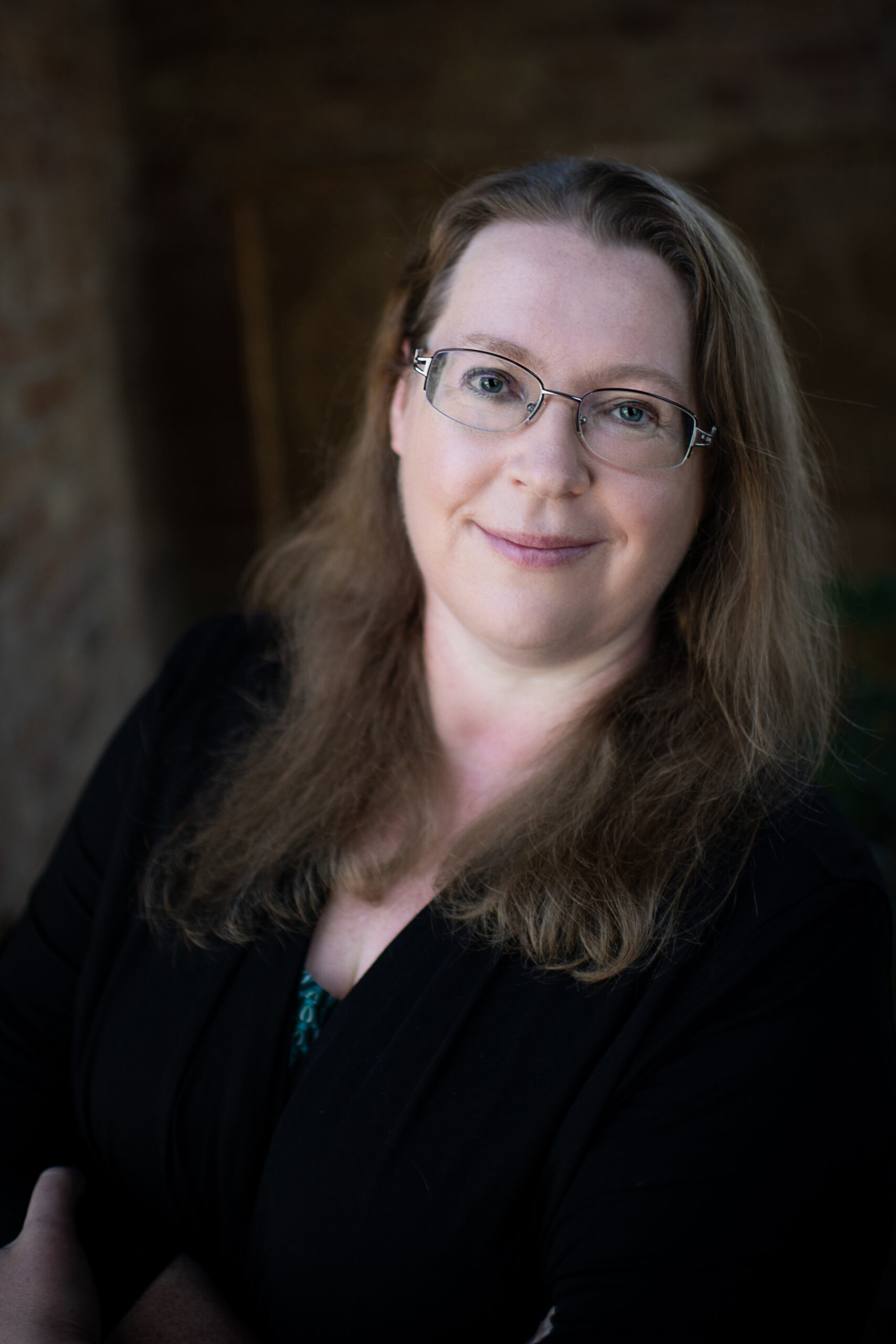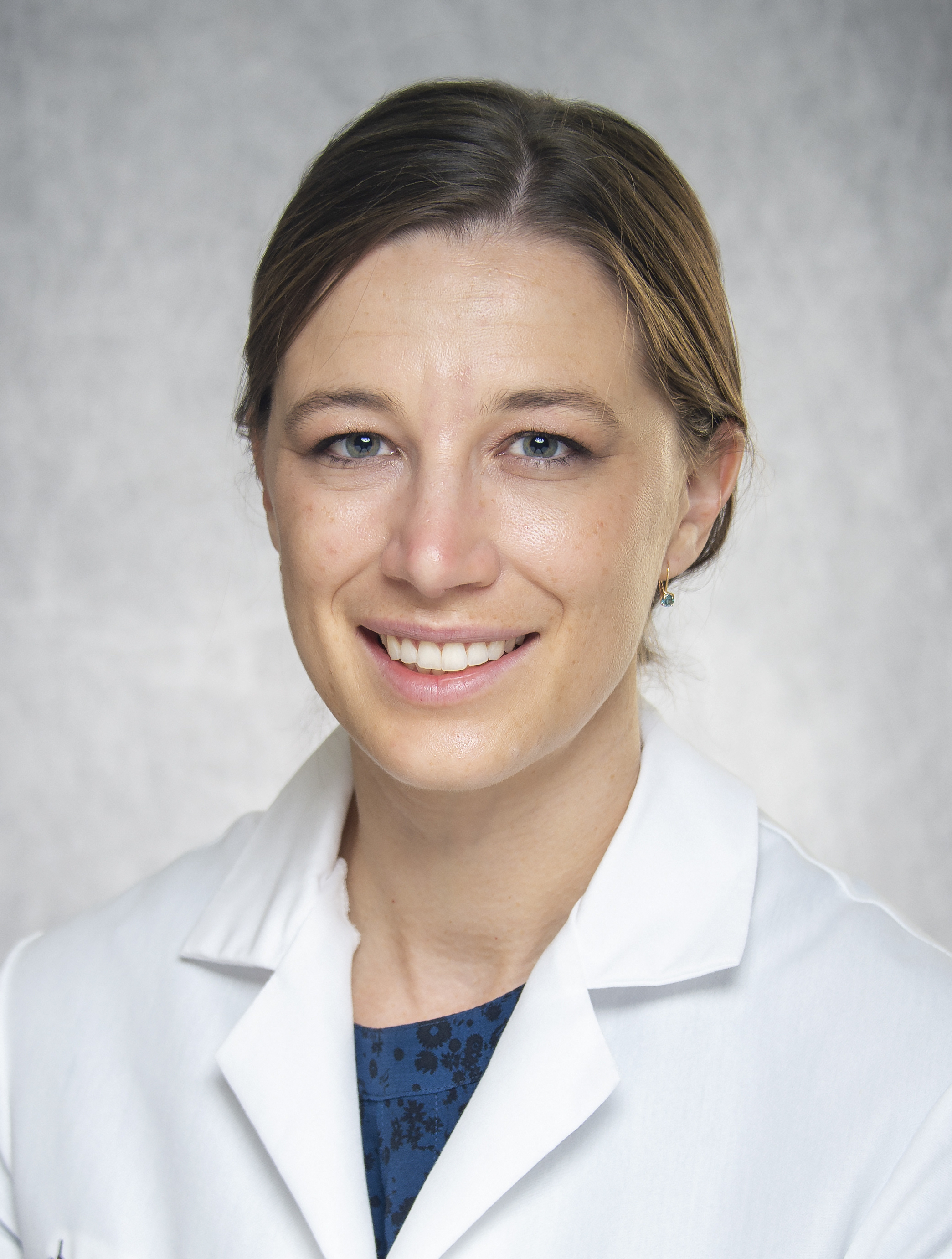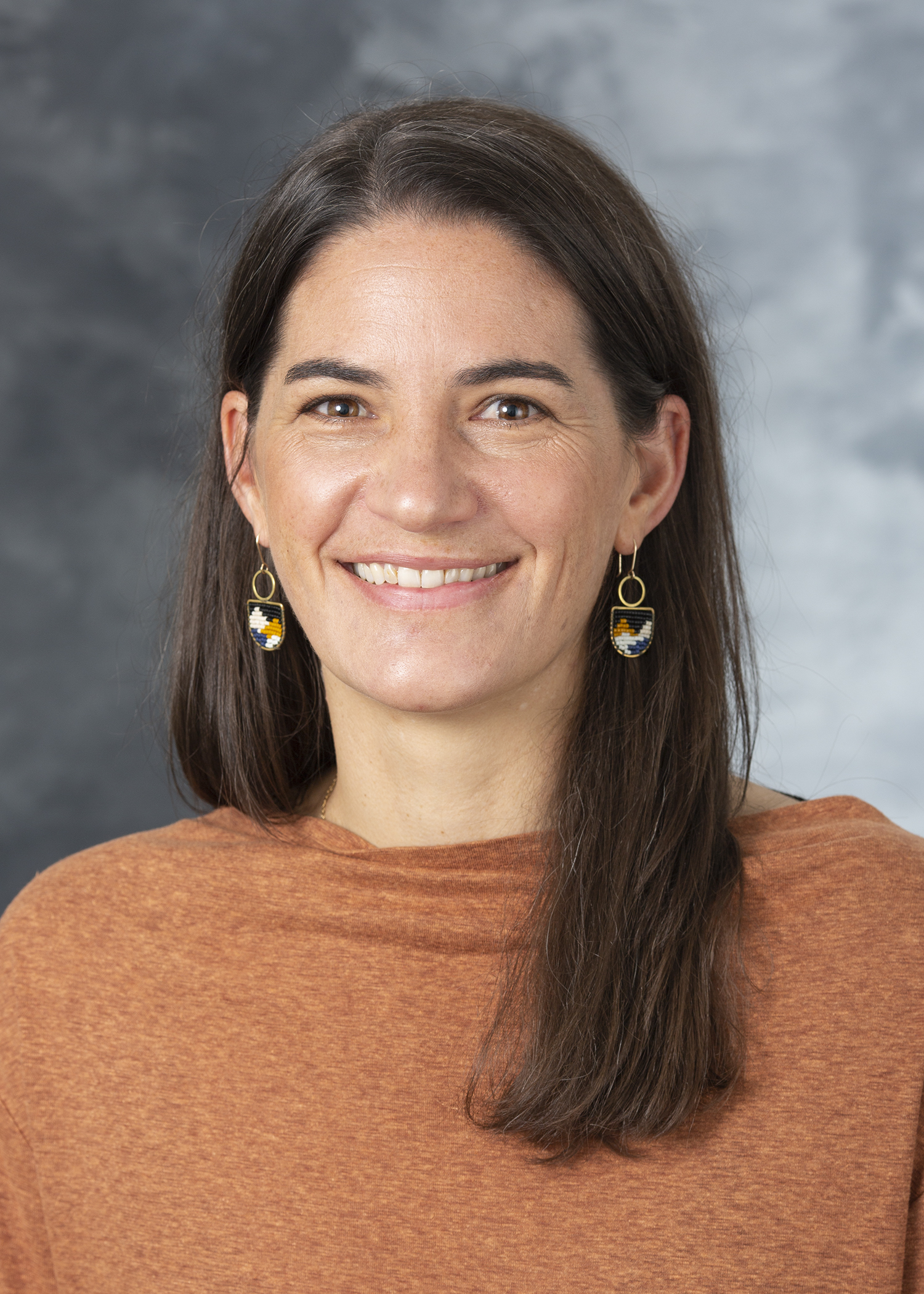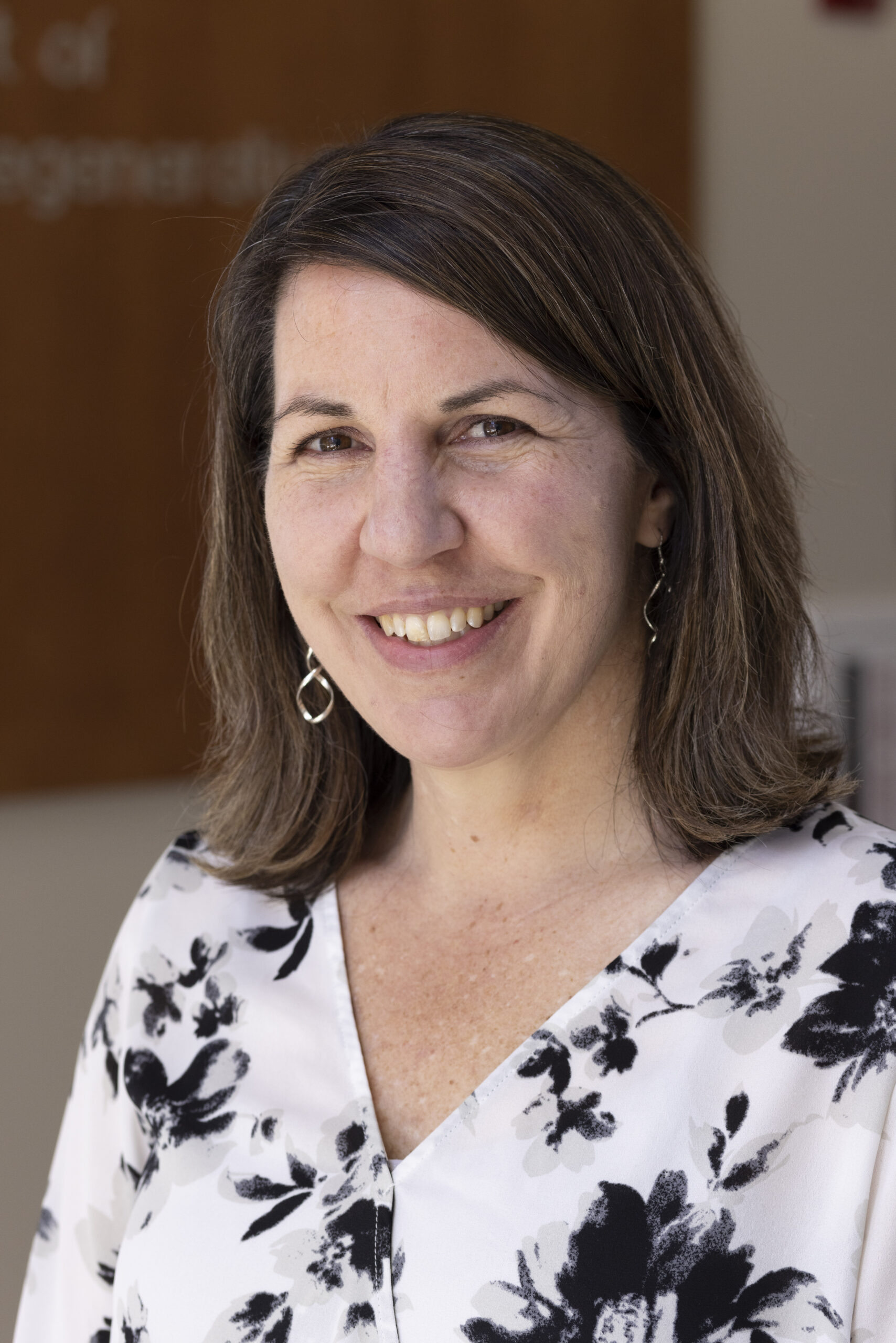THE SCHOLARS
By Discipline
Cancer Biology
Cancer biology focuses on the mechanisms that underlie fundamental processes such as cell growth, the transformation of normal cells to cancer cells, and the spread, or metastasis, of cancer cells.
DR. TING FU
Division of Pharmaceutical Sciences
COLORECTAL CANCER
Dr. Fu's laboratory is investigating the impact of particular microbial bile acids on intestinal epithelial cells. This research aims to facilitate earlier detection, enhance treatment strategies, and potentially prevent colorectal cancer. The ultimate goal is to alleviate the disease burden, improve survival rates, and enhance the overall quality of life for patients.
DR. SHEENA KERR
Carbone Cancer Center
PROSTATE CANCER
Dr. Kerr's research program focuses on creating engineered models of tumors and the cells in the microenvironment that surrounds them. They have created a model of prostate cancer in bone, made entirely from human cells that allows them to study the biology of the tumor and how it can respond to treatment. Her lab is investigating the function of a unique type of immune cell called an invariant natural killer T cell (iNKT cell). This project is investigating what these critical signals are that leads to tumor cell death, which could help develop new therapeutic approaches that could use iNKT cells as a cellular immunotherapy to treat metastatic prostate cancers that have spread to bone.
DR. PAMELA KREEGER
UW Department of Biomedical Engineering
OVARIAN CANCER
In order to stop the spread of the tumors throughout the body, Dr. Kreeger's research seeks to understand how tumor cells detach from a tumor to initiate metastasis. In particular, her research will focus on why some cells will detach as a cluster rather than as individual cells – a choice that gives them a survival advantage against both natural defenses and chemotherapy.
Cancer Genomics
Cancer is a disease of gene mutation. Understanding these mutations that drive cancer leads to a better awareness of how cancer arises and spreads to distant organs.
DR. JOHN DENU
UW Department of Biomolecular Chemistry
PROSTATE CANCER
Dr. Denu’s research program centers on targeting DNA as a strategy to kill cancer cells. Oncogenic protein NSD2 has recently emerged as a therapeutic target, however no effective inhibitors exist because of poor molecular understanding. The goal of Dr. Denu's research is to determine the molecular Achilles heel of NSD2, paving the way for NSD2 inhibitors to treat prostate and other cancers.
DR. JANE CHURPEK
UW DEPARTMENT OF MEDICINE
BLOOD CANCERS
Dr. Churpek uses state of the art sequencing methods to identify new genes responsible for blood cancer risk in families. Just like familial breast cancer, risk for developing a blood cancer can run in families. However, the causative genes remain unknown for the majority of blood cancer-prone families, limiting our ability to determine the underlying biology that could ultimately lead to methods of prevention. This work has the potential to define new human diseases for the benefit of families from Wisconsin and beyond.
DR. GAELEN HESS
UW Department of Biomolecular Chemistry
Dr. Hess's research identifies and investigates novel factors that modulate the activity of DNA damaging cancer therapies and genome editors. These findings will improve patient care by discovering genetic biomarkers to inform the proper treatment of patients and advance genome editing towards its therapeutic potential. In the era of precision medicine, we require a deeper understanding of these pathways to identify genetic factors that predict the patient's response to these treatments. Additionally, DNA repair has a significant role in genome-editing therapies (i.e., CRISPR/Cas9), in which the genome of an unhealthy cell can be perturbed. These therapies generate targeted DNA damage, but they rely on the DNA repair machinery to complete the editing. For these technologies to reach their potential, a thorough understanding of DNA repair and the tools to manipulate these pathways is necessary.
DR. SHUANG (GEORGE) ZHAO
UW Department of Human Oncology
PROSTATE CANCER
Dr. Zhao seeks to develop a blood test which can easily identify patients with highly methylated tumors based on their circulating tumor cells which are cancer cells that have detached from the solid tumor and have entered the blood stream. Some tumors exhibit high levels of DNA methylation, and treatments targeting DNA methylation have been successful in blood-based cancers. However, these treatments have not had the same level of success in solid tumors. An important reason is that there is currently no easy way to identify which tumors have high levels of DNA methylation and therefore may be best treated with anti-methylation drugs. The test Dr. Zhao's lab hopes to develop could then be used to select patients for clinical trials using anti-methylation treatments. Ultimately, this type of personalized cancer care where treatment is based on each individual patient rather than a one-size-fits-all approach may help prolong life in patients with advanced cancer.
DR. GRACE BLITZER
UW Department of Human Oncology
ENDOMETRIAL CANCER
Dr. Blitzer and team are conducting a pilot clinical trial investigating a blood test to identify cancer in the blood of women with uterine cancer. This test looks at the cancer DNA in blood and could be used to personalize treatments for uterine cancer patients in the future.
DR. ANNA BECK
Division of Surgical Oncology
BREAST CANCER
Dr. Beck and her team analyze the accuracy of genomic-based risk scores in women who already considered clinically high risk for breast cancer is to improve the ability to further personalize and refine clinical definition of high risk. Their findings will hopefully lead to clinicians being able to assess on an individual level who is truly at highest risk for developing breast cancer and will derive the greatest benefit from risk reducing strategies including additional screening and medications like anti-endocrine therapy.
DR. MARK BURKARD
UW Department of Medicine
BREAST CANCER
Dr. Mark Burkard is part of the UWCCC Precision Medicine Molecular Tumor Board where clinicians, pathologists and scientists work collaboratively to recommend patient-specific targeted therapies. This collaborative group of experts from around the state serves as a resource to evaluate the meaning and context of genomic information about a patient’s tumor in order to recommend better treatment that will positively impact survival rates.
Cancer Imaging
Detecting cancer at its earliest stages is fundamental for early treatment and increasing cure rates.
DR. EDWARD JACKSON
UW Department of Medical Physics
Dr. Jackson collaborated with Drs. Matt Witek, Tabby Kennedy and Greg Avey to more precisely image head and neck cancers to improve future treatment approaches in complex cases. UW is one of the few sites in the United States to have access to a combined PET/MRI scanner. This device gives researchers and physicians access to incredibly high resolution images of the tumor, while simultaneously providing metabolic and cellular level data. Dr. Jackson and team have investigated ways to use this device to improve tumor targeting with radiotherapy and also ways to use this information to decrease treatment toxicity.
DR. DARCIE MOORE
UW Department of Neuroscience
BRAIN CANCER
Glioblastoma (GBM) is the most common primary adult brain cancer and carries a median overall survival of only 15 months. New strategies are required to improve patient survival, as well as new tools to measure efficacy of treatments. Dr. Moore and her team propose developing new targeted radionuclide therapy (TRF) combinations with immunotherapy for the treatment of a rodent model of GBM, together with the development of a method to monitor what is happening to cells of the tumor by using a microscope to take pictures of tumor cells and immune cells through an implanted glass window in the skull above the tumor. Using this method, Dr. Moore can visualize daily how the body and the tumor respond to treatment, and if there are specific types of cells each therapy is targeting. The ability to track the shrinking as well as regrowth of the tumor and identify cell-specific responses during treatment will provide a novel approach in the field of GBM research, and establish better and more efficient strategies for treatment of GBM.
DR. AMY FOLWER
UW Department of Radiology
BREAST CANCER
Dr. Fowler's research examines how non-invasive imaging of tumor glucose metabolism can identify breast cancers that would benefit from commonly used endocrine therapies with faster results compared to standard clinical imaging tests.
DR. ADAM KUCHNIA
Department of Nutritional Sciences
PANCREATIC CANCER
Dr. Kuchnia's team is dedicated to improving the early detection of cancer cachexia, or body wasting, through the utilization of clinical imaging tools and plasma biomarkers. This research aims to establish a diagnostic framework, addressing one of the most significant challenges in pancreatic cancer patients’ care.
JACOB JOHNSON
Student Scholar - Dr. Scott Reeder's Lab
LIVER CANCER
Jacob's research focuses on improving the value of MRI with deep learning as applied to screening for hepatocellular carcinoma. This work will help develop noninvasive imaging methods that improve the care of patients.
DR. HAU LE
UW Department of Surgery
LUNG CANCER | PEDIATRIC CANCER
In collaboration with Drs. J. Leon Shohet, Ha Nguyen, Mario Otto and Christian Captini, Dr. Le's research brings together a team of engineers, oncologists, and a surgeon to design and build an innovative cold atmospheric plasma device that can kill cancer cells without harming normal surrounding tissue. The device can be used in the operating room to destroy cancer cells left behind during surgery or to extend surgery to patients who have cancer but are traditionally deemed inoperable.
DR. JESSICA MILLER
UW Department of Human Oncology
LIVER CANCER | PANCREATIC CANCER
Dr. Miller's research specializes in using modern CT Scan imaging to improve the precision of radiation therapy delivery to tumors. This new imaging has the capability to perform dual-energy CT (DECT), which has the potential to improve tumor visualization in challenging anatomical sites like the pancreas and liver. Dr. Miller's goal is that through dedicated DECT research, her team can improve patient imaging and ultimately help save patient lives.
Drug Design
Finding new treatments based on biological targets via algorithms, large amounts of data and technologies significantly improves the effectiveness of new and existing drugs.
Immunooncology
Harnessing the body’s own defenses to recognize cancer cells and destroy them.
DR. HUY DINH
UW DEPARTMENT OF ONCOLOGY
OVARIAN CANCER
Dr. Dinh's research aims to define the roles of neutrophils in tumors and precursor cells in ovarian cancer. Neutrophils are the most abundant immune cells in human blood and are the first cells recruited to defend against pathogenic invaders. Emerging scientific evidence has shown that neutrophils change at an early stage of cancer and there is an urgent need to find an effective early cancer detection biomarker for ovarian cancer as the five-year survival rate increases from 40% to 90% when ovarian cancer is detected early (Stage 1). Understanding neutrophil functions allows Dr. Dinh and his team to find new prognostic markers for early cancer detection and new therapeutic targets for immunotherapies. These findings have the potential to transform how cancer diagnosis and treatment will be performed in the future.
DR. WEI XU
UW Department of Oncology
BREAST CANCER
Triple-negative breast cancer (TNBC), the most aggressive subtype of breast cancer, has few targeted treatments available. Immunotherapy that harnesses the patient’s own immune system to eradicate cancer cells yields low response rates for TNBC, underscoring the need for combination therapy. Dr. Xu's research found that inhibition of CARM1 boosts the patient’s immune response, and sensitizes breast tumors to immunotherapy and her research aims to examine how CARM1 inhibition primes the tumor microenvironment to sensitize tumors to immunotherapy treatment. Understanding this will help developing novel immunotherapy combination regimens to more effectively harness the immune system to combat TNBC. In addition, Dr. Xu identified a biomarker, namely methylated-BAF155, in tumor cells within the blood of metastatic breast cancer patients that reflects CARM1’s activity. With this, Dr. Xu's research also aims to characterize methylated-BAF155 as a biomarker for identifying patients who will likely respond to the combination (CARM1 inhibition and immunotherapy) therapy. The development of a new combination therapy along with a diagnostic / prognostic biomarker will improve the clinical outcome for TNBC patients.
DR. IRENE ONG
UW Department of Obstetrics and Gynecology
MELANOMA
Tumors arise due to genetic alterations, which can lead to the presentation of mutated peptides by human leucocyte antigen (HLA) molecules to elicit T-cells to destroy tumors. Dr. Ong's team will identify each patient’s personalized tumor mutations to design and rank peptides that can bind to and be presented by HLA molecules to T-cells to enable personalized treatments.
DR. ZACHARY MORRIS
Department of Human Oncology
MELANOMA
Dr. Morris and his team are developing an innovative approach to enhance the effectiveness of therapy for specific types of melanoma that have metastasized to the spinal fluid. Currently, radiation therapy impacts the entire brain and spine, which has significant side effects. The team's proposed method directly delivers the treatment into the spinal fluid, precisely targeting tumor cells and minimizing impact on the surrounding brain, spinal cord, and bone.
DR. MALINDA WEST
Department of Medicine
BREAST CANCER
Dr. West and her team are investigating the impact of estrogen-blocking medications, commonly employed in the treatment of estrogen receptor-positive breast cancer, on the tumor microenvironment. Their research aims to understand how these medications can modify the microenvironment to facilitate immune system attacks on the tumor, ultimately promoting more effective tumor eradication.
DR. BECKY RICHARDS
Department of Pediatrics
LEUKEMIA
Dr. Richards and her team are researching more potent immunotherapies to treat the most common type of leukemia, acute myeloid leukemia (AML). They will study chimeric antigen receptor (CAR) T cells, a type of immunotherapy in which a patient’s own T cells can be redirected to specifically kill cancer cells. This cross-disciplinary collaborative effort will help inform strategies to improve the success of CAR T cells. Ultimately, this will expand access to this transformative therapy for patients with AML.
DR. SUZANNE PONIK
Department of Cell & Regenerative Biology
BREAST CANCER
Dr. Ponik's lab is developing a treatment that directly blocks the formation of fibrotic tissue in patients with metastatic TNBC to improve their response to standard treatments (chemotherapy and immunotherapy). By pursuing this goal, they aim to improve the overall health and survival of patients with metastatic breast cancer. Metastatic triple-negative breast cancers (TNBCs) are often treated with chemotherapy or immunotherapy. However, these treatments are not very effective and there is currently no cure for this disease.
DR. DUSTIN DEMING
UW Department of Medicine
COLORECTAL CANCER
Dr. Deming's research focuses on combining DNA targeting and immunotherapy in the treatment of colorectal cancer. Currently immunotherapeutics are only beneficial for a small subset of patients with colorectal cancer who have deficiencies in DNA mismatch repair. Dr. Deming's lab has recently generated data indicating the potential to enhance the immune response using precision medicine-based therapies. His team will now utilize murine and patient-derived spheroid cultures to screen targeted therapies for their potential to enhance the immune response to immune checkpoint blockade.
DR. XIAOFEI ZHANG
UW Department of Pathology
PANCREATIC CANCER
Dr. Zhang's work focuses on harnessing the immune system to treat pancreatic cancer. Pancreatic cancer is the fourth deadliest cancer in US, but the second deadliest cancer in Wisconsin. It is one of the hardest-to-treat cancer because of its dense “scar-like” stroma which prevent treatment and immune surveillance. Dr. Zhang's research focuses on finding a way to break down the storma and make pancreatic cancer cells targetable by immunotherapy. If it works, this strategy will provide guidance to design more effective combinational therapy strategy to benefit pancreatic cancer patients in Wisconsin and all over the world.
NanoMedicine
Researchers at UW are designing new medicines that home in on your cancer and deliver specific treatments leading to decreased side effects and increase cure rates.
DR. WEIPING TANG
Division of Pharmaceutical Sciences
HEAD & NECK CANCER
Dr. Tang and his team have created innovative small molecule drug candidates designed to activate the body's natural protein disposal system. This system is targeted to eliminate the protein AXL, crucial for both metastatic potential and drug resistance of head and neck cancer.
Population Health
A customizable approach that allows researchers and healthcare professionals to connect practice to policy through non-traditional partnerships among different sectors of the healthcare community.
DR. ELIZABETH COX
UW Department of Pediatrics
CERVICAL CANCER
Dr. Cox's research centers around the human papillomavirus (HPV) vaccination. Vaccinating children against HP) can help prevent many different types of cancers. Some parents first decline getting the HPV vaccine for their child but eventually accept the vaccine (secondary acceptance). Dr. Cox's research will help better understand what proportion of parents eventually accept the HPV vaccine, which children and parents are more likely to eventually accept, and how providers can best support parents to accept the vaccine. The results will help us design and test new ways for providers to respond to parents who are hesitant about the HPV vaccine.
DR. MEGAN FITZPATRICK
UW Department of Pathology and Laboratory Medicine
CERVICAL CANCER
High rates of cancer deaths among immigrant women in the United States, such as Hmong women, compared to the general population can be linked to cultural factors that affect their utilization of health care. Such factors include lack of knowledge, cultural beliefs, and limited access to care. To increase awareness and improve participation in cervical cancer screening among Hmong and Burmese women, Dr. Fitzpatrick's SMPH study team will partner with Milwaukee Consortium for Hmong Health (MCHH) to develop culturally-appropriate cervical cancer educational workshops led by community health workers. After the workshop, women will be offered screening tests collected themselves or by a clinician. Dr. Fitzpatrick's team will evaluate differences in participation among the groups to determine if offering self-collected screening increases participation in cervical cancer screening among Southeast Asian refugee and immigrant women in Wisconsin.
DR. OLUFUNMILOLA ABRAHAM
UW Department of Social & Administrative Sciences
CANCER PREVENTION
Dr. Abraham's team has created a game, OutSMA℞T Cancer, to improve adolescents’ and their families’ cancer knowledge, increase awareness of cancer prevention, and reduce risky behaviors. Through health literacy principles, content and game design their research will ensure OutSMA℞T Cancer is a culturally appropriate cancer prevention intervention.
HASAN NADEEM
Student Scholar - Dr. Shaneda Warren Anderson's Lab
BREAST CANCER
Hasan's work investigates why breast cancer incidence, mortality, and survival differ across race/ethnicity, geography, and socioeconomic status. This research aims to create a more equitable treatment paradigm and reduce disparities within breast cancer care.
Nicholas Schreiter
Student Scholar - Dr. Sharon Weber's Lab
LIVER CANCER | PANCREATIC CANCER
The Surgical Coordinated Transition of Care program is a service that helps bridge cancer surgical patient care from the time of discharge until first follow-up. Nicholas's project focuses on the efficacy/cost effectiveness of this program and assessing common causes of poor outcomes among these patients.
TAYLOR STEWART
Student Scholar - Dr. Amye Tevaarwerk's lab
BREAST CANCER
With a growing cancer survivor population, the survivorship journey requires improved communication between oncology and primary care. Taylor Stewart's work will re-engineer Survivorship Care Plans to address primary care information needs to optimize care coordination and thereby improve patient outcomes.


Jose Bien Rafaelo Hernandez
Student Scholar - Dr. Peggy Kim's Lab
Jose's research will focus on the role of patient education in addressing barriers to cancer pain management.
Precision Medicine
Although we often define cancer by the organ in which it arises, there are over 100 types of unique cancers. Research at UW propels our understanding of your individual tumor so we can personalize your therapy.
DR. DAVID BEEBE
UW Department of Biomedical Engineering
HEAD & NECK CANCER
Dr. Beebe's work includes the development of 3D in vitro models that can recapitulate in vivo geometry and interactions present in the lymphatic system in head and neck cancer and allow for improved study of HNC metastasis via the lymphatics. Specifically, his research expands his lab's patient-derived lymphatic vessel model for studying lymphatic vessel interactions with HNCCs and the tumor microenvironment to evaluate its potential for informing personalized therapy.
DR. JOSH COON
UW Department of Chemistry
Dr. Coon develops cutting-edge chemical instrumentation to measure proteins in human cells and tissues. In collaboration with Professor Mark Burkard, Dr. Coon's lab will investigate chromosome instability (CIN)-a common feature of diverse cancers-to identify protein changes at the cellular level that regulate chromosomes. This information will identify the biomarkers needed to better target therapies.
DR. RONG HU
UW Department of Pathology and Laboratory Medicine
HEAD & NECK CANCER
Dr. Hu's research focuses on Tissue microarrays (TMA) which are powerful tools used to study cancer biomarkers for cancer diagnosis, prognosis and treatment prediction. Currently, she's building multiple head and neck cancer TMAs from different anatomic sites to support UW head and neck cancer research.
DR. NOELLE LOCONTE
UW Department of Medicine
COLON CANCER | LIVER CANCER | PANCREATIC CANCER
Dr. LoConte's works to increase efforts in reducing high risk alcohol use, improving HPV vaccination rates and increase recommended cancer screening tests across Wisconsin.
DR. KRISTINA MATKOWSKYJ
UW Department of Pathology and Laboratory Medicine
Dr. Matkowskyj focuses on building upon the existing infrastructure within the Translational Science BioCore (TSB) to optimize patient consenting, increase tissue donation to the BioBank, expedite the creation of research resources (i.e., tissue microarrays) and improve the utilization of biospecimens by our UW Carbone Cancer Center investigators. Her work will lead to improvement in cancer patient health.
DR. BETH WEAVER
UW Department of Cell and Regenerative Biology
BREAST CANCER
Dr. Weaver's research aims to identify a biomarker to predict which patients will benefit from treatment with the commonly used chemotherapy drug paclitaxel (TaxolTM). Such a biomarker could assist in identifying the optimal therapy for individual patients.
DR. MELISSA SKALA
UW Department of Biomedical Engineering
BREAST CANCER | COLORECTAL CANCER | HEAD & NECK CANCER | PANCREATIC CANCER
Dr. Skala aims to develop technologies that can customize immunotherapies for each patient, so that more breast cancer patients can achieve robust, long-lasting remissions. Her work has established new optical imaging technologies that can predict breast cancer response to chemotherapy and targeted therapies and looks to further develop optical imaging technologies to assess response to immunotherapies in patient samples.
DR. GAELEN HESS
UW Department of Biomolecular Chemistry
Dr. Hess's research identifies and investigates novel factors that modulate the activity of DNA damaging cancer therapies and genome editors. These findings will improve patient care by discovering genetic biomarkers to inform the proper treatment of patients and advance genome editing towards its therapeutic potential. In the era of precision medicine, we require a deeper understanding of these pathways to identify genetic factors that predict the patient's response to these treatments. Additionally, DNA repair has a significant role in genome-editing therapies (i.e., CRISPR/Cas9), in which the genome of an unhealthy cell can be perturbed. These therapies generate targeted DNA damage, but they rely on the DNA repair machinery to complete the editing. For these technologies to reach their potential, a thorough understanding of DNA repair and the tools to manipulate these pathways is necessary.
DR. SHIGEKI MIYAMOTO
UW Department of Oncology
BLOOD CANCER
Dr. Miyamotos research focuses on identifying novel biomarkers to predict and treat aggressive forms of multiple myeloma (MM). In conjunction with Drs. Lingjun Li and Natalie Callander, this collaborative research aims to develop a drug that will target a drug resistant factor in order to offer effective therapies to MM patients.
DR. SUSAN PITT
UW Department of Surgery
THYROID CANCER
Dr. Pitt's work focuses on improving treatment strategies for thyroid cancer. Her work focuses on why surgeons and patients choose extensive treatment that can have long-term consequences for low-risk thyroid cancer. Dr. Pitt's study will help adapt a decision-support intervention used in other cancer patients for use in low-risk thyroid cancer in order to give patients the best treatment options.
Radiation Therapy
Researchers at UW have pioneered advances in the delivery of radiation precisely to the tumor and not normal tissue.
DR. BETHANY ANDERSON
UW Department of Human Oncology
BREAST CANCER
Radiation therapy can cause fibrosis (scar tissue) to form and reduce the blood supply of a treated area, which may increase the risk for surgical complications and a worse long-term cosmetic outcome. Dr. Anderson works with colleagues in the plastic surgery department to perform a clinical study using oral medicines given during and after radiation therapy showing promise in reducing fibrosis. Her research also focuses on studying biomarkers for scar tissue formation.
DR. BRYAN BEDNARZ
UW Department of Medical Physics
Dr. Bednarz researches the impact of radiation emitted from radioactive drugs on tumor cells and their surroundings.
DR. STEVEN HOWARD
UW Department of Human Oncology
BRAIN CANCER
Dr. Howard's research focuses on how cancers develop therapy resistance and developing strategies to reverse resistance.
DR. JENNIFER SMILOWITZ
UW Department of Human Oncology
Dr. Smilowitz performs cutting edge research on next generation radiation treatment machines to further improve treatment outcomes for cancer patients.
DR. JOHN FLOBERG
UW Department of Human Oncology
PROSTATE CANCER
Dr. Floberg's research will investigates if prostate specific membrane antigen positron emission tomography (PSMA PET), a new way of imaging prostate cancer, can predict early response to definitive radiation therapy in men with high-risk prostate cancer, and will also investigate molecular signatures associated with PSMA PET imaging signal. These findings could help personalize therapy for men with high-risk prostate cancer.
DR. JORDAN SLAGOWSKI
UW Department of Human Oncology
SOLID TUMORS
Preclinical irradiators are an essential tool for scientists investigating cancer biology and novel treatment approaches but technologically lag the methods used in modern clinical practice. Dr. Slagowski and his team's research is developing a new system to deliver highly conformal radiation treatments in a preclinical setting to improve the translation of research results to outcomes in human cancer patients.
DR. CARRI GLIDE-HURST
Department of Human Oncology
MULTIPLE DISEASE SITES
Dr. Glide-Hurst and her research team are employing CT imaging to evaluate how positioning patients upright, versus laying down, affects the location of organs and tumors during the delivery of radiation therapy. This study is instrumental in establishing the foundation for the transition of upright radiation therapy from a research setting to practical clinical treatments.
IAN MARSH
Student Scholar - Dr. Bryan Bednarz's Lab
Marsh works in the laboratory of Dr. Bryan Bednarz studying how external beam radiation can be combined with molecular targeted radionuclides to advance cancer treatment in primary and metastatic tumors.
DR. ZACHARY MORRIS
UW Department of Human Oncology
BREAST CANCER | COLON CANCER
Dr. Morris investigates a new approach to cancer treatment, in which radiation will be delivered to a single tumor site and then injected into that site with agents that stimulate the immune system to recognize and kill tumor cells. Preliminary data suggests that this combined treatment may act like an anti-cancer vaccine, resulting in both a local and systemic anti-tumor response. This approach may improve the response to existing cancer immunotherapies and is therefore potentially relevant to the treatment of nearly any type of cancer.
Targeted Therapies
Understanding what proteins drive cancer is critical and such advances will lead to cures.
DR. PETER LEWIS
UW Department of Biomolecular Chemistry
HEAD & NECK CANCER
High-grad pediatric gliomas are among the leading causes of cancer death in children and Dr. Lewis' research points to aberrant chromosome structure as a previously unsuspected driver of these intractable tumors. The goal of his research is to illuminate the molecular mechanisms that underlie Histone H3 mutations in order to advance the exploration of therapeutic avenues.
DR. MARIO OTTO
UW Department of Pediatrics
PEDIATRIC CANCER
Dr. Otto and his research group is pursuing novel, alternative approaches to treat childhood cancer. His research includes areas such as adoptive immunotherapies, stem cell graft engineering and molecular targeting of cancers with nanoparticles and small anti-cancer molecules.
DR. WEIBO CAI
UW Department of Radiology
LUNG CANCER
Dr. Cai's research aims to develop a series of antibody-based agents that can help doctors to more effectively fight lung cancer through specific targeting of a protein called CD146, whose expression is correlated with decreased survival of cancer patients. Several novel antibody-based agents will be developed for non-invasive imaging of lung cancer which can be used to select the likely responders to molecularly targeted therapy, and to monitor the early therapeutic responses for future precision medicine.
DR. QUANYIN HU
UW Department of Pharmaceutical Sciences
Pancreatic Cancer
The prognosis of patients with pancreatic ductal adenocarcinoma (PDAC) remains extremely poor, with less than 6% of patients surviving beyond 5 years. Dr. Hu's research aims to develop a novel treatment strategy to increase the therapeutic efficacy and improve the prognosis of PDAC patients through systematically modulating the immunosuppressive tumor microenvironment and intratumoral microbiota to increase the immune response to immune checkpoint inhibitors.
DR. LIXIN RUI
Department of Medicine
LYMPHOMA
Dr. Rui and his team are focused on addressing a mechanism that diminishes energy production in lymphoma cancer cells. Their research is geared towards formulating a targeted therapeutic approach with the objective of enhancing the long-term survival rates of B-cell lymphoma patients.
YOUSEF ALHARBI
Student Scholar - Dr. Manish Patankar's Lab
OVARIAN CANCER
Alharbi’s research is exploring the mechanism of novel drugs that kill cancer cells by preventing them from maintaining a normal ionic balance across their cell membrane. These novel drugs include a new class of antibody and natural compound--a small molecule agent extracted from the root of the plumbagin plant.
MARK KLEIN
Student Scholar - Dr. John Denu's Lab
Klein's research focuses on developing therapies that combat the growth of cancer cells by targeting epigenetic factors. His research will evaluate changes in the epigenetic modifications of histones, monitor global changes in histone modifications and evaluate cellular updates of small-molecules following treatment.
DR. ANJON AUDHYA
UW Department of Biomolecular Chemistry
BREAST CANCER
The goal of Dr. Audhya's work is to determine whether inhibiting the intracellular movement of key factors that promote metastasis can serve as a new therapeutic strategy for the treatment of metastatic cancers in patients.
Therapeutic Resistance
Understanding and predicting how tumors become resistant to different therapies is vital to prolonging life and curing patients.
DR. JOSH LANG
UW Department of Medicine
PROSTATE CANCER
Dr. Lang studies Circulating Tumor Cells to detect cancer at an early stage and develop new treatment approaches for resistant cancers. Through the use of cutting edge microfluidic technology, Dr. Lang has been able to capture cancer cells from a blood draw (instead of a biopsy) to test how cancers become resistant to our current therapies. His research will test these samples to identify men that may benefit from a new class of drugs being developed to target treatment resistant prostate cancers.
DR. SHIGEKI MIYAMOTO
UW Department of Oncology
BLOOD CANCER
Dr. Miyamoto researches how cancers develop therapy resistance and developing strategies to reverse resistance.
DR. RANDY KIMPLE
UW Department of Human Oncology
HEAD & NECK CANCER
Dr. Kimple's research focuses on using mesenchymal stem cells (MSCs) to treat radiation-induced xerostomia. Working with Dr. Jacques Galipeau and the Program for Advanced Cell Therapy, Dr. Kimple's lab seeks to study the MSCs from head and neck cancer patients who have completed radiation to ensure they are capable of being used as a personalized therapy. This pilot study will lay the groundwork for a FDA-IND application and a first-in human clinical trial to treat xerostomia.
DR. JING ZHANG
UW Department of Oncology
MYELOMA
Dr. Zhang's lab developed an animal model highly representative of human high-risk multiple myeloma (hrMM) subset with de novo resistance to the current myeloma frontline treatment. Her research will identify and validate potential therapeutic targets, focusing on epigenetic regulators, for treating hrMM.
DR. JESSICA LANG
Department of Pathology & Laboratory Medicine
OVARIAN CANCER
Dr. Lang's research is exploring novel methods to detect chemotherapy resistance in ovarian cancer before it becomes clinically evident. Her specific objective is to pinpoint predictive biomarkers or potential drug targets that could enhance outcomes for ovarian cancer patients in the future.
DR. QUAOVI SODJI
Department of Human Oncology
PANCREATIC CANCER
Pancreatic ductal adenocarcinoma (PDAC) is a very aggressive type of cancer that is expected to become the second leading cause of cancer deaths by 2030. Unfortunately, immunotherapy, which has been successful in treating other cancers, hasn't worked well for PDAC. Dr. Sodji's lab aims to overcome the challenges that make immunotherapy ineffective against PDAC. This approach combines radiation therapy, a tumor-specific antibody, and a personalized cell therapy. The benefits of this research for patients are significant. By combining these treatments, we target the tumor's suppressive environment, which is a major obstacle in treating PDAC. This combination enhances the body's natural ability to fight cancer, potentially leading to more effective treatment, improved survival rates, and better quality of life for patients.
Viral Oncology
Over 25% of all cancers are caused by viral infection and UW researchers are leading the way in methods for detection, treatment and prevention of viral-driven cancer.
DR. PAUL AHLQUIST
UW Department of Oncology
CERVICAL CANCER
Dr. Ahlquist studies how viruses cause certain cancers and developing new approaches to improve future treatments for these cancers. Dr. Ahlquist and his collaborators are revealing novel interactions by which papillomavirus-induced cervical cancer cells exchange detailed signals with surrounding, non-cancerous stromal cells, creating a supportive tumor micro-environment essential to tumor development and persistence. The results are providing valuable insights for understanding, diagnosing and controlling cervical cancers, which are still a leading cause of cancer death for women worldwide.
TAO WEI
Student Scholar - Dr. Paul Lambert's Lab
HEAD & NECK CANCER
Wei's research in Dr. Paul Lambert's lab focuses on head and neck cancer which is the sixth most common cancer worldwide. In her research, Wei discovered how a particular gene expression in head and neck cancer contributes to this type of cancer and is working to identify new drug targets that could lead to new therapies to patients.
DR. NATHAN SHERER
UW Department of Oncology
ANOGENITAL CANCER | CERVICAL CANCER | HEAD & NECK CANCER
Dr. Sherer is working in collaboration with Dr. Evie Carchman to identify new targets for treating virus-driven cancers. Human papillomavirus (HPV) is the most commonly diagnosed sexually-transmitted disease in Wisconsin and the United States and an estimated 79 million Americans are HPV-positive and at elevated risk for deadly HPV associated oral and anogenital cancers. Dr. Sherer's project will determine if FDA-approved protease inhibitors currently used to treat HIV/AIDS can be repurposed to treat or prevent HPV-associated cancers.






























































































